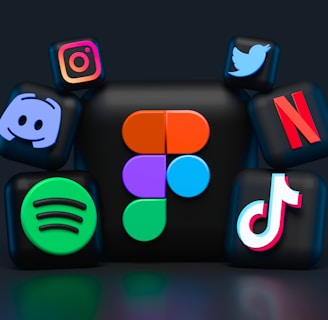The Connection Between Porn Addiction and Social Media Addiction: Risks, Consequences, and Strategies


Introduction
Welcome to our blog post on the connection between porn addiction and social media addiction. In today's digital age, where social media platforms and adult content websites are easily accessible, it's important to understand the potential risks and consequences of excessive use. In this article, we will explore the relationship between these two addictive behaviors and discuss some strategies for managing and overcoming them.
The Rise of Social Media and Pornography
In recent years, social media has become an integral part of our daily lives. Platforms like Facebook, Instagram, Twitter, and Snapchat allow us to connect with friends, share our thoughts and experiences, and stay updated on current events. However, with the increasing popularity of social media, there has also been a surge in the availability and consumption of pornography.
Adult content websites have seen a significant increase in traffic, and the anonymity and accessibility of these sites make it easier than ever to indulge in explicit material. Furthermore, social media platforms themselves have become a breeding ground for explicit content, with users sharing and promoting adult material.
The Link Between Porn Addiction and Social Media Addiction
While porn addiction and social media addiction may seem like separate issues, they are often interconnected. Both behaviors involve seeking instant gratification and can be used as a form of escapism from real-life problems or stressors.
One of the main reasons for the connection between these two addictions is the constant exposure to sexualized content on social media. Many users, especially younger individuals, are exposed to explicit images and videos at a young age, which can normalize and desensitize them to sexual content. This can lead to an increased curiosity and interest in exploring more explicit material, ultimately leading to a porn addiction.
Additionally, social media platforms often use algorithms to personalize the content users see, which can create an echo chamber effect. If a user frequently engages with explicit material, the algorithms will show them more of the same, reinforcing their interest and potentially leading to addictive behaviors.
The Impact on Mental Health
Both porn addiction and social media addiction can have detrimental effects on mental health. Excessive use of these platforms can lead to feelings of isolation, low self-esteem, and depression. Constant comparison to others' curated online lives can also contribute to feelings of inadequacy and anxiety.
Furthermore, the unrealistic and often exaggerated portrayals of sex and relationships in pornography can distort one's perception of intimacy and lead to difficulties in forming and maintaining healthy relationships.
Managing and Overcoming Addiction
If you suspect that you or someone you know is struggling with porn addiction or social media addiction, it's important to seek help and support. Here are some strategies that can help in managing and overcoming these addictions:
1. Recognize the Problem
The first step in overcoming addiction is acknowledging that there is a problem. Reflect on your own behaviors and patterns of use. Are you spending excessive amounts of time on social media or consuming pornographic material regularly? If so, it may be time to take a step back and reassess your habits.
2. Set Boundaries
Establishing clear boundaries for yourself can be an effective way to manage addiction. This could include limiting your daily social media usage, blocking adult content websites, or setting specific times for engaging with these platforms.
3. Seek Support
Don't be afraid to reach out for support. Talk to a trusted friend, family member, or seek professional help from a therapist or counselor who specializes in addiction. They can provide guidance, support, and helpful strategies for overcoming these addictive behaviors.
4. Find Healthy Alternatives
Replace the time spent on social media or consuming pornography with healthier activities. Engage in hobbies, exercise, spend time outdoors, or connect with friends in person. Finding alternative ways to occupy your time can help break the cycle of addiction.
5. Practice Self-Care
Take care of your mental and physical well-being. Engage in activities that promote relaxation and self-care, such as meditation, yoga, or taking a bath. Prioritize self-care to reduce stress and improve overall well-being.
Conclusion
In conclusion, the connection between porn addiction and social media addiction is a growing concern in today's society. It's important to be aware of the potential risks and consequences of excessive use and to take steps to manage and overcome these addictive behaviors. By recognizing the problem, setting boundaries, seeking support, finding healthy alternatives, and practicing self-care, individuals can regain control over their lives and find a healthier balance in their digital consumption.


